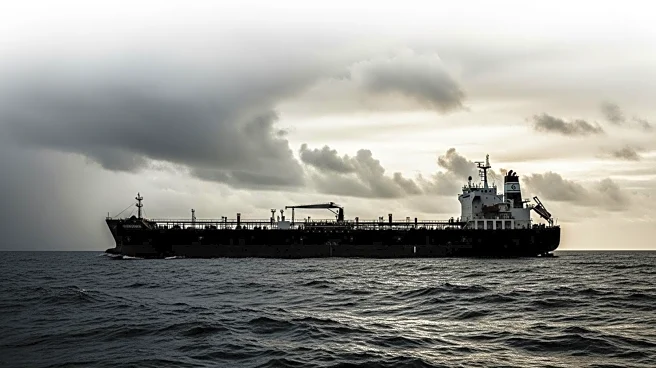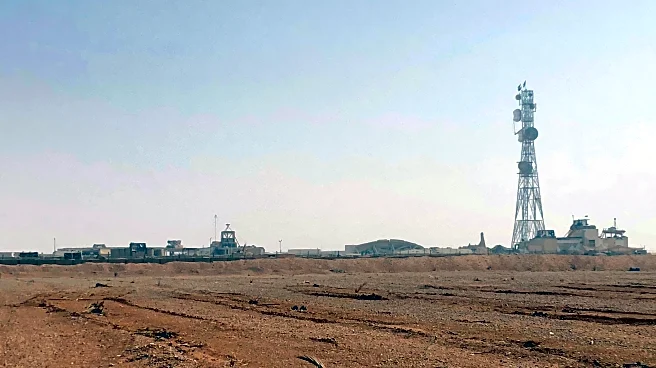What's Happening?
French authorities have charged the captain of an oil tanker believed to be part of Russia's 'shadow fleet,' which is used to evade international sanctions. The tanker, named Boracay, was boarded by French soldiers earlier this week due to its inclusion on a list of vessels subject to EU sanctions for carrying Russian oil exports. The captain, a Chinese national, faces charges of refusing to comply with naval orders and failing to justify the nationality of the ship's flag. The Boracay, currently registered in Benin, has changed its name and flag multiple times in recent years, allegedly to avoid sanctions imposed in response to Russia's invasion of Ukraine. The vessel was detained off the coast of Denmark last month, and its captain is scheduled to attend a court hearing in Brest, France, next February.
Why It's Important?
The charges against the captain of the Boracay highlight ongoing international efforts to enforce sanctions against Russia, particularly in the energy sector. These sanctions aim to limit Russian oil exports, a significant source of revenue for the country, in response to its military actions in Ukraine. The existence of a 'shadow fleet' suggests that Russia is actively seeking ways to circumvent these restrictions, potentially undermining the effectiveness of the sanctions. The case also underscores the complexities of international maritime law and the challenges faced by countries in policing global shipping routes. The incident may prompt further scrutiny and action from other nations to ensure compliance with sanctions and maintain pressure on Russia.
What's Next?
The captain's upcoming court hearing in Brest will likely draw attention from international observers, as it may set a precedent for how similar cases are handled in the future. French authorities and other EU nations may increase their monitoring of vessels suspected to be part of Russia's 'shadow fleet,' potentially leading to more detentions and legal actions. Additionally, the unresolved question of whether the Boracay was involved in recent drone incursions into Danish airspace could lead to further investigations and diplomatic tensions. The situation may also influence EU security policies and cooperation among member states in addressing maritime and aerial incursions.
Beyond the Headlines
The incident raises broader questions about the effectiveness of international sanctions and the ability of countries to enforce them in a globalized economy. It also highlights the strategic importance of maritime routes and the role of naval forces in maintaining international order. The use of a 'shadow fleet' by Russia could lead to increased scrutiny of shipping practices worldwide, potentially affecting global trade dynamics. Furthermore, the case may prompt discussions on the need for enhanced international cooperation and legal frameworks to address the challenges posed by evasive shipping tactics.











